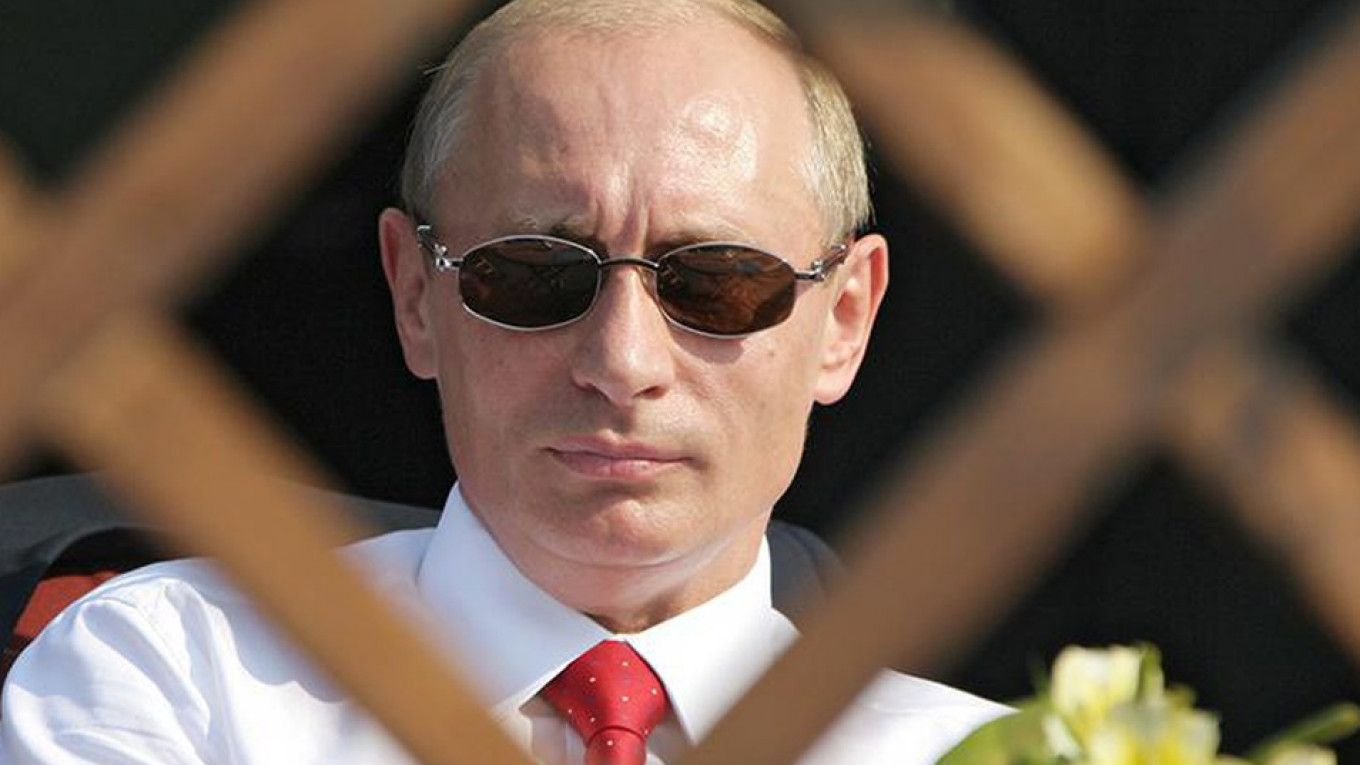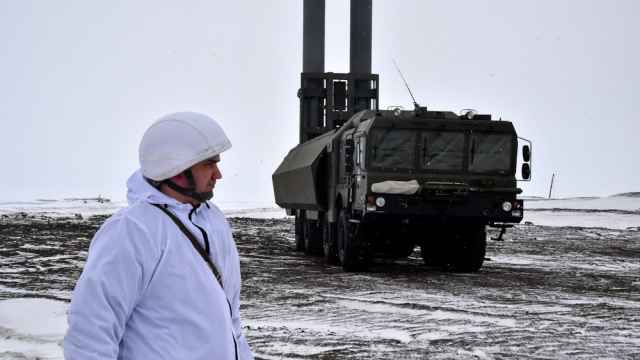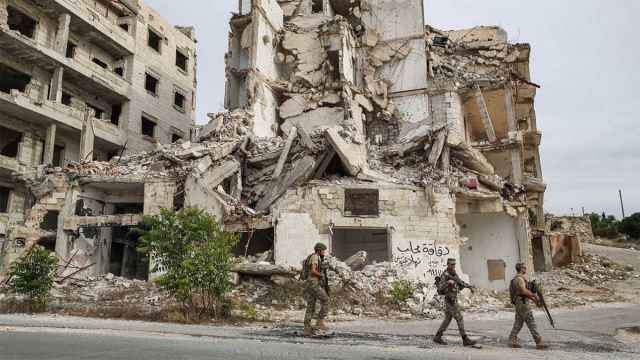In September 2011, two Chechens suspected of involvement in the January suicide bombing at Moscow’s Domodedovo airport, which left 37 people dead, had just left an Istanbul mosque after Friday prayers when, along with a companion, they were shot dead.
According to an indictment cited in a major Turkish newspaper, prosecutors had identified two of the hitmen as Russian nationals working for the Kremlin’s Federal Security Service (FSB), which, prosecutors said, was fighting Chechen groups in Turkey, including those linked to Chechnya’s insurgency against Moscow.
But subsequent reporting by the BBC identified one of the suspects as a member of a Moscow crime gang; another Russian suspected of killing a Chechen militant in Turkey in 2015 likewise hailed from organized crime, according to the BBC, and was also accused by Turkish authorities of working for Russian intelligence.
Especially since 2014, there has been a steady trickle of cases suggesting that Moscow is using organized crime as a covert tool for the “dark aspects” of its foreign policy. Beyond the specific cases discussed in this article, to a considerable extent this assessment is based on discussions with Western officials, especially numerous semi-structured conversations with seven European security and law-enforcement officers.
Publicly available details are often scant, as organized crime investigations, and the consequent trials, tend to be lengthy and details are kept under wraps until court proceedings are over. Nonetheless, the consensus within the European security community is that there has been a definite uptick in the use of criminals to further Russia’s foreign policy goals.
While in Soviet times the Kremlin’s political police demonstrated a willingness to turn to criminals as assets or recruits when needed, the scale and approach seemingly adopted by President Vladimir Putin’s Russia has changed.
Following the post-EuroMaidan worsening of relations with the West, the Kremlin has increasingly adopted what has been called a “mobilisation state” approach. Aware of the West’s greater economic, military and soft power, Russia has been turning to any available alternative foreign policy levers, from nationalist oligarchs to disruptive media outlets.
The gangsters are no exception, and instead of simply identifying unacceptable behaviors, as it did in the past, the Kremlin — occasionally — makes specific demands of those gangsters susceptible to its pressure.
Russia’s practices in this area are also different from those of most other countries. Collaboration with criminals by governments in pursuing foreign-policy goals is certainly not unique to Moscow, and one could look at U.S. examples ranging from cooperation with the Mafia in the 1943 conquest of Sicily to the 1985-87 Iran-Contra deals with drug traffickers.
However, in fairness, these cases are extremely rare, singular and typically carried out in the context of wars, both open and undeclared. It is striking in contrast that Russia appears to be deploying organized-crime connections abroad in ostensible peacetime, reflecting that Moscow sees the current geopolitical clash with the West as an existential political struggle analogous to war.
‘Crimintern’
Some elements of Russian state cooperation with criminal networks can, like the American examples above, be seen in military conflicts, declared or not: In Ukraine, for example, local gangsters in Crimea allegedly provided muscle as so-called “self-defense volunteers” alongside the infamous “little green men,” and some of the forces fighting on the side of Russian-backed separatists in Donbas include organised crime figures.
Other cases involving alleged state-criminal linkages prop up Russia’s interests abroad more subtly. For instance, after the suspected paymasters of the notorious U.S.-based Russian “sleeper” spies disappeared from Cyprus following his arrest there in 2010, several U.S. and European counter-intelligence officials told me they believe Russian criminal groups involved in human trafficking quietly smuggled him to Russia, or else into Greece for subsequent exfiltration by Russia’s Foreign Intelligence Service (SVR). As with all such allegations in this article, Russia denies cooperating with criminals.
However, the main activities criminal gangs are required to perform in the new Russian “Crimintern" tend to involve either intelligence missions or generating chernaya kassa (“black cash”)—money with no provable connection to the Russian state, but helpful in paying for some of its projects. The suspicion voiced by a number of European security services is that these funds then go toward bankrolling useful political figures or media outlets.
Criminal money-laundering networks can also be used to “clean” intelligence agencies’ operational funds. According to a specialist from the Italian Guardia di Finanza, or financial police, this tends to involve small-scale operations through individuals’ bank accounts, not huge, multi-beneficiary schemes like the 1998-99 Bank of New York money-laundering operation or the 2008-2014 “laundromat” documented recently 2008-2014 “laundromat” documented recently by the Organized Crime and Corruption Reporting Project.
For example, after Estonian security officer Eston Kohver was kidnapped across the border by an FSB commando team (Russia denies the charge despite compelling evidence from its own border guards), Estonian security services told me that the cigarette smuggling gang he had been investigating was being given a free pass to transport its goods across the Russian frontier.
In return, they said, the gang members conducted surveillance on areas and individuals of interest to Moscow (as have other smugglers) and kicked back a share of their profits into otherwise unremarkable bank accounts for the FSB’s use.
According to a Bulgarian security officer, a similar case, which appears to have stalled since 2017, involved smugglers working through the port of Varna, bringing in drugs and counterfeit consumer goods from Odessa. These were Ukrainians working for a Russia-based gang, and the working hypothesis was that they were not only feeding information on Odessa back to Moscow via contacts in the Russian expat community in Varna, but since 2016 also being “taxed” a share of their profits as chernaya kassa funds paid through the accounts of their contacts in Varna.. His belief, although it was just speculation, was that this was in return for a degree of impunity for the gang’s leaders in Moscow.
Among European security officials there is also a growing concern that criminal moneys are being spent to establish potential listening stations and staging posts for Russian intelligence. A German counter-intelligence officer told me that a series of other properties in Germany and elsewhere in Nordic Europe had been bought by criminals, yet seem to be only sporadically occupied.
The common denominator was that “they all are close to, sometimes even overlooking, strategic ports, bases and airfields.” His speculation was that the criminals bought them, but the Russian espionage services — especially military intelligence, formerly known as GRU — would use them for its own purposes. (Similar speculation concerning a recent Finnish raid near Turku, however, is likely unfounded.)
Likewise, the Kremlin has for some time employed hackers as adjuncts to its own internet campaigns of disruption and espionage. Increasingly, instead of so-called “patriotic hackers”—often more enthusiastic than skillful — they are employing cybercriminals, some of whom are directly recruited into government service, but more often deployed for pay or to avoid prison. They have been used to break into foreign systems and, according to some security experts, they may also be used for money-making ventures, again intended to raise chernaya kassa funds.
The Past
In Soviet times, the Kremlin actively used criminals to advance its interests. It was willing to bankroll, arm and shelter terrorists operating in the West, and the KGB cultivated black marketeers and hard-hard-currency speculators dealing with Western tourists as informants. Indeed, the Cheka, the Bolsheviks’ first political police, recruited bandits and gangsters for its needs, and later vory, members of the criminal subculture, became crucial to the running of the Gulag camps.
After the Soviet collapse, however, the Communist leadership’s centralized control over such activity disintegrated and a new blurring of the boundaries between the political, economic and criminal elites arose. This was especially evident in 1990s St. Petersburg where Putin served as deputy mayor. Part of his portfolio then seems to have been managing the authorities’ relationship with the city’s powerful underworld, and especially the dominant Tambovskaya grouping, something comprehensively explored by political scientist Karen Dawisha. Putin appears to have successfully bartered economic opportunities for the criminals’ cooperation.
When Putin first became the country’s elected president in 2000, he brought his lessons to bear on the national level. In effect, organized crime was offered a deal: Don’t challenge or embarrass the state and you won’t be treated as an enemy of the state. This did not mean absolute impunity: The police and the courts still continued their efforts against the gangsters, and even criminal kingpins faced arrest if they stepped out of line. However, it did represent a social contract that most of the gangs were happy to accept, having survived a decade of turf wars and amassed significant wealth that they wanted to keep.
The Future
The mobilization-state model assumes that all organizations and individuals can be yoked to national interests: It is not so much totalitarianism as conscription. Since there is little prospect of the current geopolitical clash with the West easing in any substantive way so long as Putin is in the Kremlin, or of his reinventing his model, this use of criminals as an instrument of statecraft—though it is a response to a specific challenge—is likely to be persistent.
So far the practice has apparently been confined to Europe, but the constraints of its further spread are likely situational rather than structural. “Eurasian organized crime” in the U.S., to use the FBI’s term, is typically multi-ethnic and as likely to be dominated by Armenians or Georgians or Uzbeks as Russians. It is also much less directly connected to Russian-based networks and thus less vulnerable to pressure from the Kremlin.
However, there are virtual worlds of criminality, from money laundering to cybercrime, in which geography is much less important. In May 2018, for example, a Kazakh-born Canadian hacker was convicted in California of working for the FSB. Furthermore, Russian gangs are more strongly connected to the underworlds of Latin America (where they swap cocaine for Afghan heroin) than to those of the U.S., and may make inroads into networks stretching northwards.
Even so, the threat must be kept in context. Gangsters make uncomfortable and often unreliable agents — deniability is bought at the expense of effectiveness. The Kremlin will still likely prefer to use its more conventional covert assets where it can, and the criminals will simply be an auxiliary asset used when their capabilities are especially appropriate or other resources are overstretched.
Besides which, whenever states think they can use criminals, they tend also to open themselves up to reciprocal exploitation. With corruption a serious problem for the Russian security and intelligence services, there has already been evidence of such blowback — from the use of state cyber assets for private gain to military intelligence assets being used to gather information on Russian gangsters abroad, according to Canadian police. Here and now, this crime-state nexus is clearly an additional security headache for the West, but in the longer term it may pose at least as serious a problem for Russia itself.
Mark Galeotti is a senior associate fellow of RUSI and senior non-resident fellow at the Institute of International Relations Prague, as well as a 2018-19 Jean Monnet Fellow at the European University Institute. His most recent book is “The Very: Russia’s Super Mafia”. This article was originally published in Russia Matters. The views and opinions expressed in opinion pieces do not necessarily reflect the position of The Moscow Times.
A Message from The Moscow Times:
Dear readers,
We are facing unprecedented challenges. Russia's Prosecutor General's Office has designated The Moscow Times as an "undesirable" organization, criminalizing our work and putting our staff at risk of prosecution. This follows our earlier unjust labeling as a "foreign agent."
These actions are direct attempts to silence independent journalism in Russia. The authorities claim our work "discredits the decisions of the Russian leadership." We see things differently: we strive to provide accurate, unbiased reporting on Russia.
We, the journalists of The Moscow Times, refuse to be silenced. But to continue our work, we need your help.
Your support, no matter how small, makes a world of difference. If you can, please support us monthly starting from just $2. It's quick to set up, and every contribution makes a significant impact.
By supporting The Moscow Times, you're defending open, independent journalism in the face of repression. Thank you for standing with us.
Remind me later.







